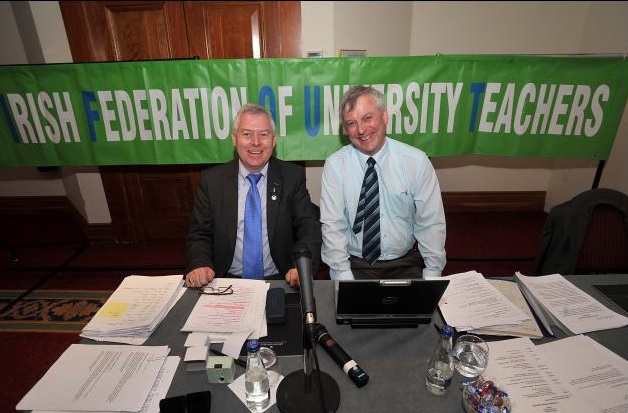The Irish Federation of University Teachers (IFUT) has called for increased investment in higher education as a way to drive economic growth.
In a new report submitted to the government, the union says it is “imperative” that the state invest in education and calls for education to be prioritised in the same way as capital spending.
It states that the government should consider it “a source of pride that we have higher than ever participation levels in higher education,” but noted that the quality of third-level education would come under increased pressure if the “underfunding” of the sector is not addressed.
Since the recession, the budgets of Ireland’s third-level institutes have been cut dramatically, the report says. Trinity has had its grant allocation cut by 22%; UCD by 25%; St. Patrick’s College, Drumcondra, by 25%; UCC by 21%; NUI Maynooth by 18%; Mary Immaculate Limerick by 18%, and NUI Galway by 16%.
The report also points out the drop in staff numbers as a result of budget cuts since 2008, noting that in 2008/9 there were 4,795 academics and 89,650 students in Ireland. However, by the year 2010/11, this had decreased to 4,426 academics while the number of students had increased to 106, 448. As such, in the space of two years , the national student-teacher ratio increased from 1:18 to 1:24.
The idea of increasing student contributions is dismissed, citing “compelling international evidence suggesting that this is a very dangerous option in view of the negative effects on participation levels.” Among the evidence referred to is a Canadian report from 2005 which concluded that “enrolment patterns by socio-economic background changed substantially in Ontario, [following] tuition fees increases.”
IFUT also highlights the fact that higher education is not as reliant on public funding as might be assumed. According to report, 50% of capital investment in higher education in 2005-2008 came from private sources.
The report ultimately concludes that the state should take on greater responsibility for the funding of higher education as an economic imperative to drive long-term growth in the Irish economy.
Calling for a “visionary approach to our crisis,” it notes that, during the recession of the early 90s, Finland increased spending on higher education as a means to combat the economic downturn.







